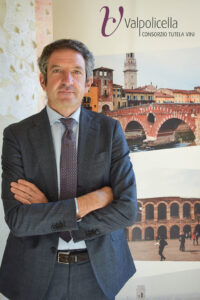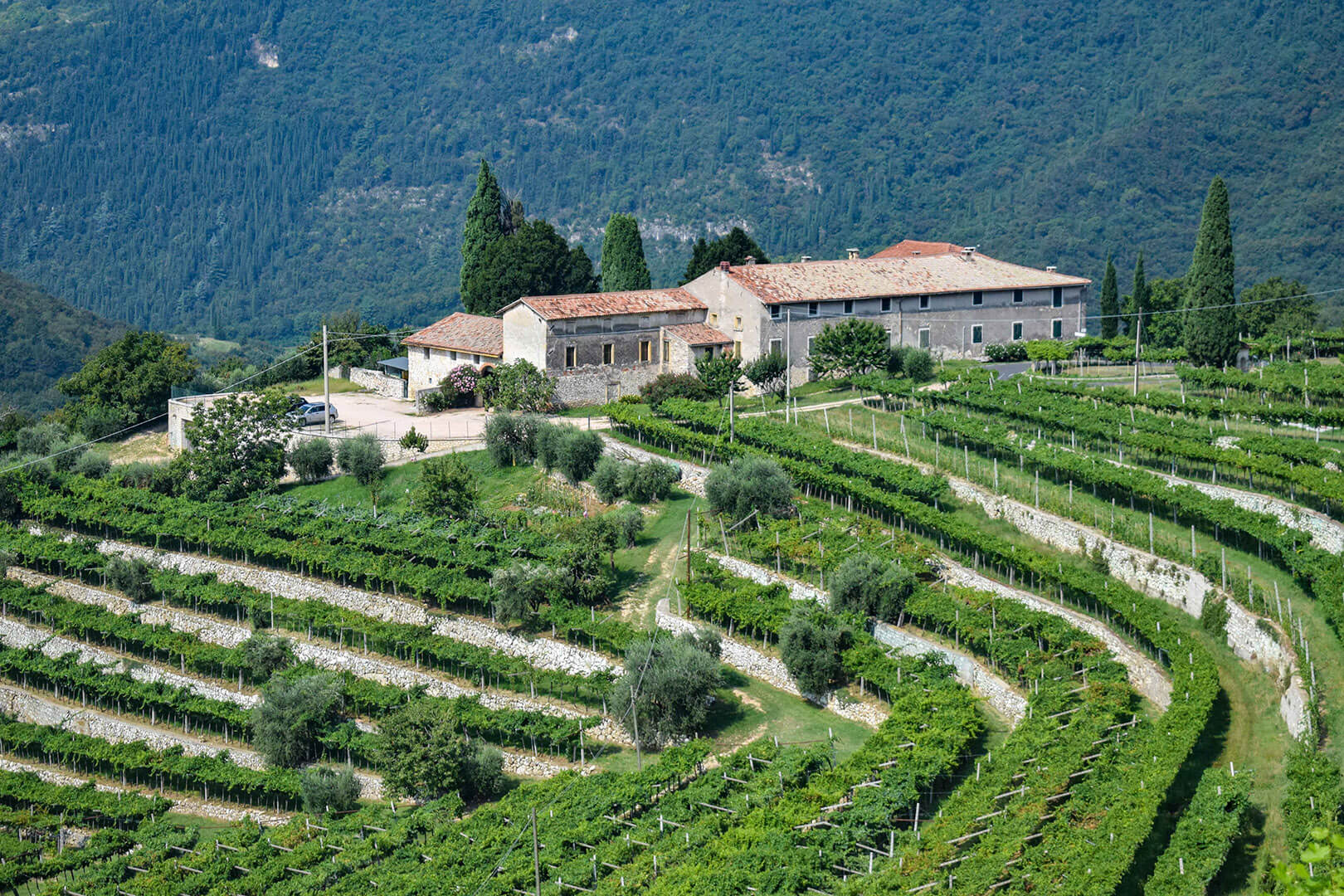SUSTAINABILITY INITIATIVES ARE ON THE RISE IN THE ITALIAN REGION
story by Lars Leicht / images courtesy of the Consorzio Vini Valpolicella

“Sustainability” has become a key word for winemakers in Valpolicella, with three letters—“RRR,” standing for “Reduce, Respect, Retrench”—representing an integral part of their mission. Over the past year, Valpolicella’s consortium of producers, the Consorzio Tutela Vini Valpolicella, certified an additional 12% of the area’s wineries for environmental, economic, and social sustainability in both the vineyard and the cellar, impacting 3,000 acres. Another 1,000 acres were converted to organic farming—a 14% increase over the previous year and doubling the amount over three years—while the process was started for 1,000 acres more.
“The policies implemented by the Consortium in recent years had the aim of making the appellation more green,” said consortium president Christian Marchesini, adding that 142 wineries—or one quarter of all the estates in Valpolicella—are now sustainable, including those already certified by the RRR program and those under conversion. This represents an increase of 74% since the 2018 inception of the program. “Environmental sustainability is not only a value of the Consortium—which has also modified the production regulations by allowing pesticides with low or no environmental impact, according to modern scientific surveys—but a strategic driver on international markets, where demand for sustainable and organic wines continues to grow. This path will allow us to strengthen the positioning of Valpolicella wines and at the same time support companies in the challenges linked to climate change.”
RRR is Italy’s first sustainability program for vineyards and wineries, applying to all wineries in the Valpolicella production zone regardless of whether they are members of the consortium. It requires such steps as reduced use of chemical fertilizers and herbicides; waste reduction and economic efficiency; respecting the rights and conditions of workers; and communicating with the community regarding vineyard treatments and other items of concern.

Climate change’s impact on winemaking and vineyard management is a focus of the Annual Valpolicella Conference, held virtually this year on February 26–27 (register below) with themed webinars and three tasting sessions. Invitees include wine professionals and journalists from 26 countries: Australia, Austria, Belgium, Brazil, Canada, China, United Arab Emirates, Estonia, Germany, Japan, Greece, Hong Kong, Norway, Netherlands, Poland, Czech Republic, Russia, Singapore, Spain, Sweden, Ukraine, U.K., France, USA, Switzerland, and Hungary.

The consortium’s membership includes 272 bottlers and 2,273 grape growers in Valpolicella—one of Italy’s top appellations for wine exports—and it represents nearly 21,000 hectares of vineyards in the 19 municipalities of the Verona province. In 2019, about 64 million bottles were produced, with an annual turnover of about 600 million euros.
